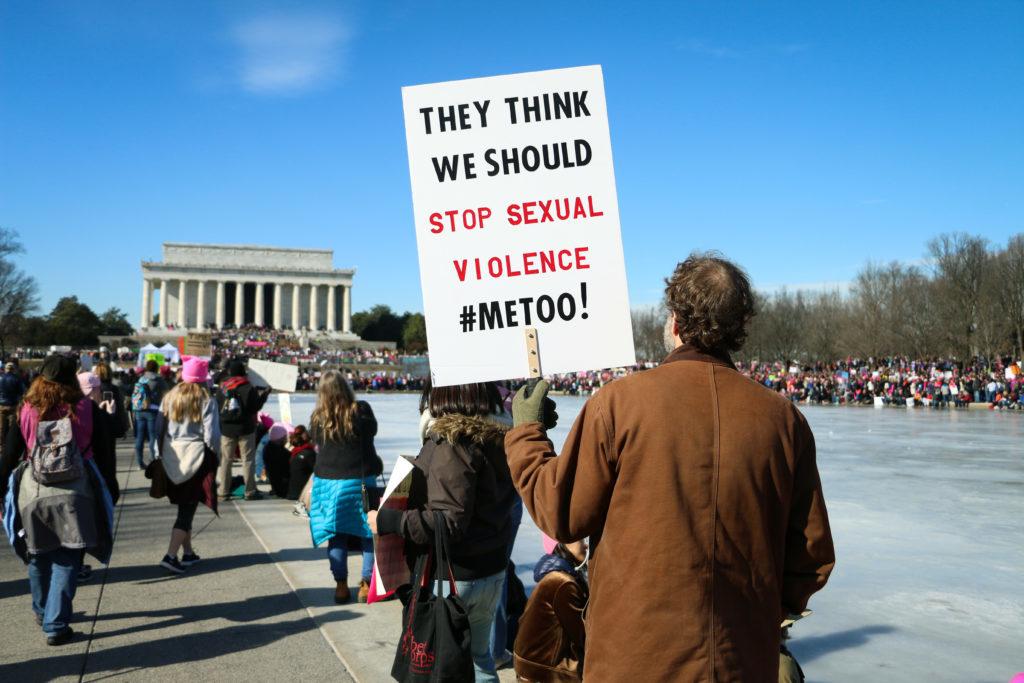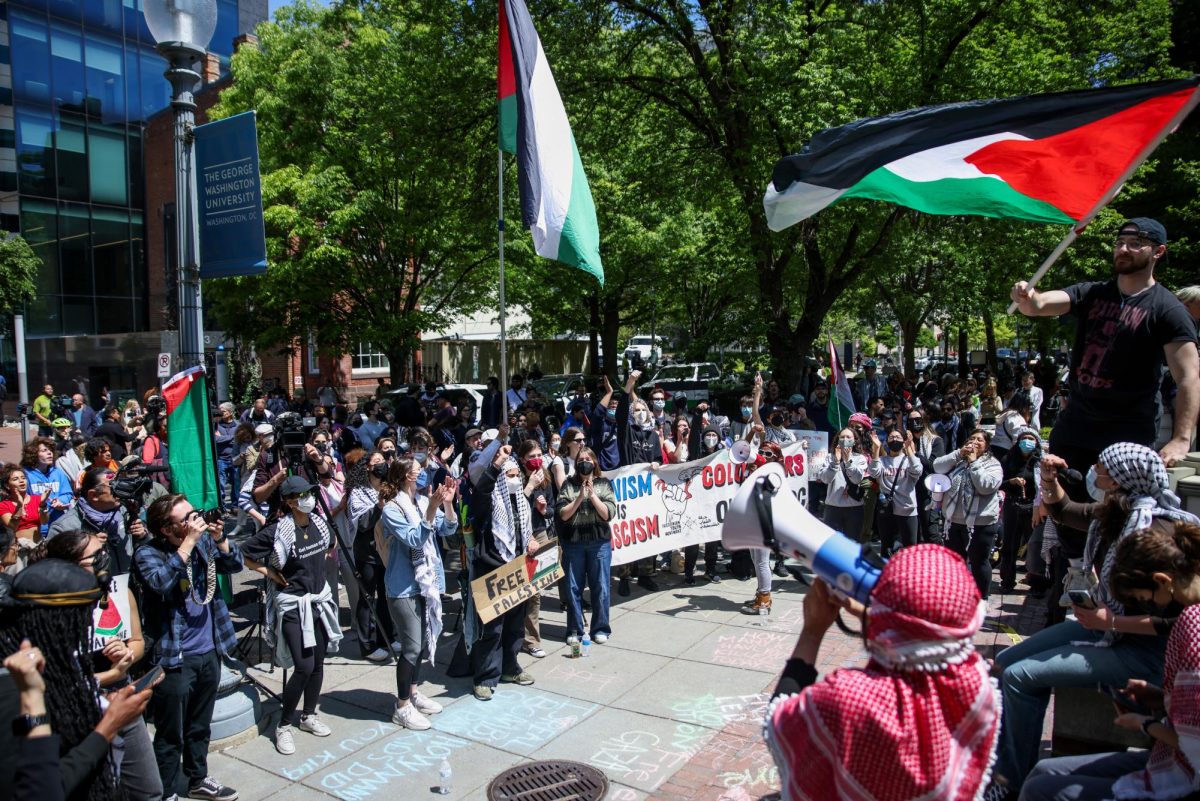As a barrage of sexual misconduct allegations have emerged against powerful men over the last several months, political researchers have been chronicling how #MeToo transformed from a viral hashtag to a full-fledged social movement.
Researchers from the Graduate School of Political Management’s PEORIA Project – which tracks how the public reacts to political messages – have analyzed dozens of sexual harassment-related hashtags over the last four months, combing through millions of tweets dating back to 2010. Their findings, released last week, show that unlike most viral phenomena, #MeToo has become a lasting social movement akin to black lives matter and is likely to move from Twitter feeds to policy proposals on Capitol Hill.
“You can see the beginnings of a political movement.”
The PEORIA Project, which quantifies how voters react to political issues in mainstream and social media, has been following and will continue to follow the Twitter conversation related to sexual harassment – notably #MeToo – which Twitter users have posted to discuss their sexual harassment and assault experiences online.
Every week since October, #MeToo has generated between 38,000 and nearly 1 million related tweets in the U.S. alone, according to ECHO, the school’s weekly report on social media research.
Michael Cohen, the interim director of the political management program and chief data scientist of the PEORIA Project, said the research team started tracking #MeToo a week after accusations against Hollywood producer Harvey Weinstein surfaced in October. Their search then expanded from “Me Too” and #MeToo to include #TimesUp, #WorkPlaceHarassment and #NoMeansNo.
“Ever since the Weinstein thing broke it was pretty obvious that this would not only be big and important, but also something that we would want to track,” he said. “We are trying to understand not only the genesis of this, but also where it is and where it can go.”
Cohen said the group’s research – led by himself and Michael Cornfield, a GSPM associate professor and the project’s research director – indicates a strong political component to the movement because the hashtag spikes in popularity around events like the Women’s March, held earlier this month. While the movement started in Hollywood, Congress has since come under fire for its handling of sexual harassment after several prominent representatives were accused of misconduct.
Cohen added that the social media movement could lead to congressional action and even a ranking system for political candidates based on their stances on #MeToo issues.
“It has not evolved to that point yet, but it is not out of the realm of possibility that it could happen this year,” he said. “You can see the beginnings of a political movement.”
Rachel Neurohr, the academic department administrator in GSPM who worked on tracing data trends for the project, said the record number of female candidates running for office in 2018 would be “doing themselves a disservice” not to incorporate the principles of the #MeToo movement in their platforms.
She said she hopes the movement will show “the impact that masculinity and power has had over women for decades.”
“We are getting the jump on something that could be a major shift in cultural consciousness in the United States and, hopefully, the wider world,” Neurohr said. “It lets people all across the country know how much their voice is heard and that a tweet can be more than just a tweet.”
Katherine Wynne, a GSPM recruitment and enrollment specialist and a member of the research team, said the #MeToo moment has already ensured consequences for many powerful men facing accusations and she hopes it will start to affect policies on gender inequality, gender roles and sexual violence.
“This issue is not news to college campuses,” she said. “But the idea that we are now seeing public figures face consequences for these sorts of behaviors is going to start setting more of a precedent for consequences.”
Crimson Hexagon, a Boston-based analytics company that tracks social media use, partnered with GSPM on the project using analytic tools to filter out any spam in the research results. The company has data on all of the billions of public conversations dating back to 2010 from social media platforms like Twitter, Instagram and Facebook.
“These powerful celebrity women who entered the conversation only after Weinstein was accused, their reach on social media was what propelled it.”
Michael Baker, the senior manager of global content strategy at Crimson Hexagon, said the team decided to release their findings in tandem with the second Women’s March Jan. 20.
Baker added that the research also examined why Weinstein – as opposed to comedian Bill Cosby or former Fox News host Bill O’Reilly, who faced similar allegations – was a catalyst for the movement. The answer, he said, was that many of Weinstein’s accusers, like actors Gwyneth Paltrow and Rose McGowan, were celebrities in their own right.
“There was something important about the celebrity nature and reach of the Weinstein accusers that really helped it stay a central conversation on Twitter for weeks and months afterwards,” he said. “These powerful celebrity women who entered the conversation only after Weinstein was accused, their reach on social media was what propelled it.”
Liz Konneker contributed reporting.





